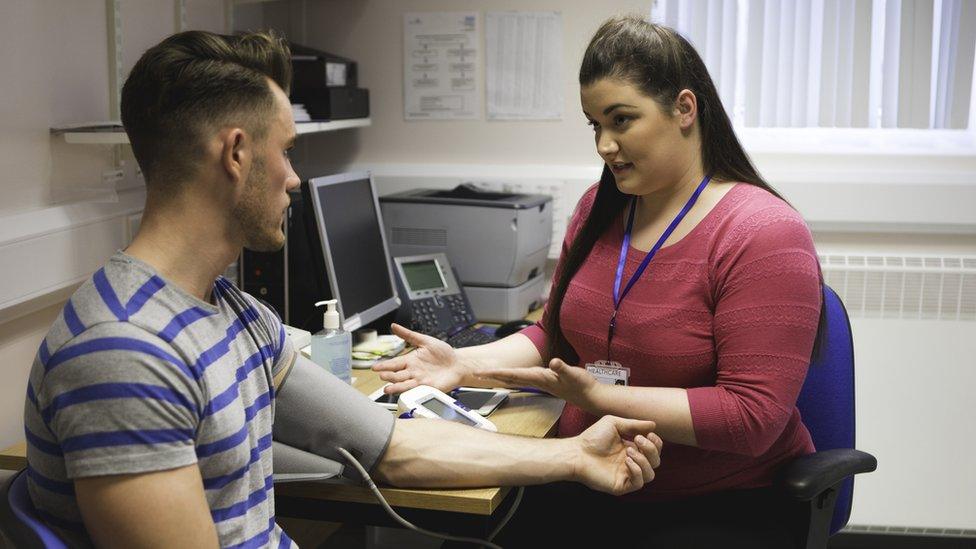NHS at 75: Records from 1948 show changing women's healthcare
- Published
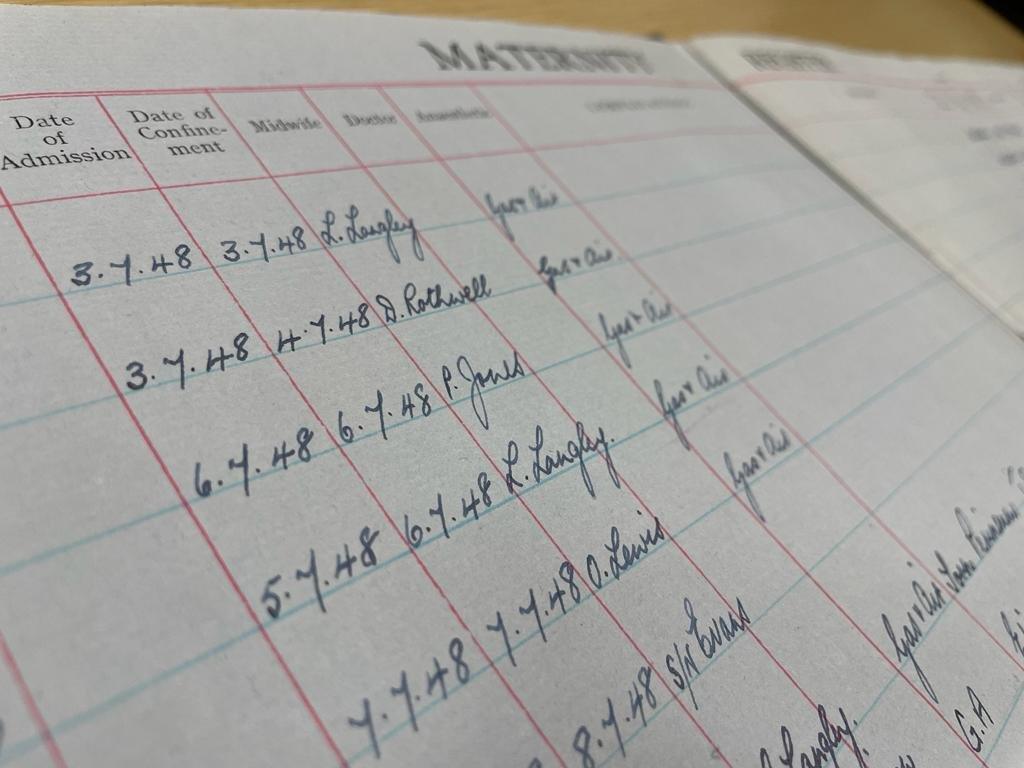
The records show the first baby born under the NHS in the Pontypridd area was on 6 July, 1948, a day after the service was created
Former midwife Claire Cutlan dusts off a large, blue, hardbound book and turns to the first page.
In neat, handwritten blue ink are details of every baby born during July 1948 in the old East Glamorgan hospital.
But it's the third entry that's significant - Pontypridd's first baby born under the care of the NHS.
Complete with details of the mother, midwife, baby weight and pain relief given.
Claire is now team leader for the early pregnancy unit at the Royal Glamorgan hospital and said the records were found during a recent department move.
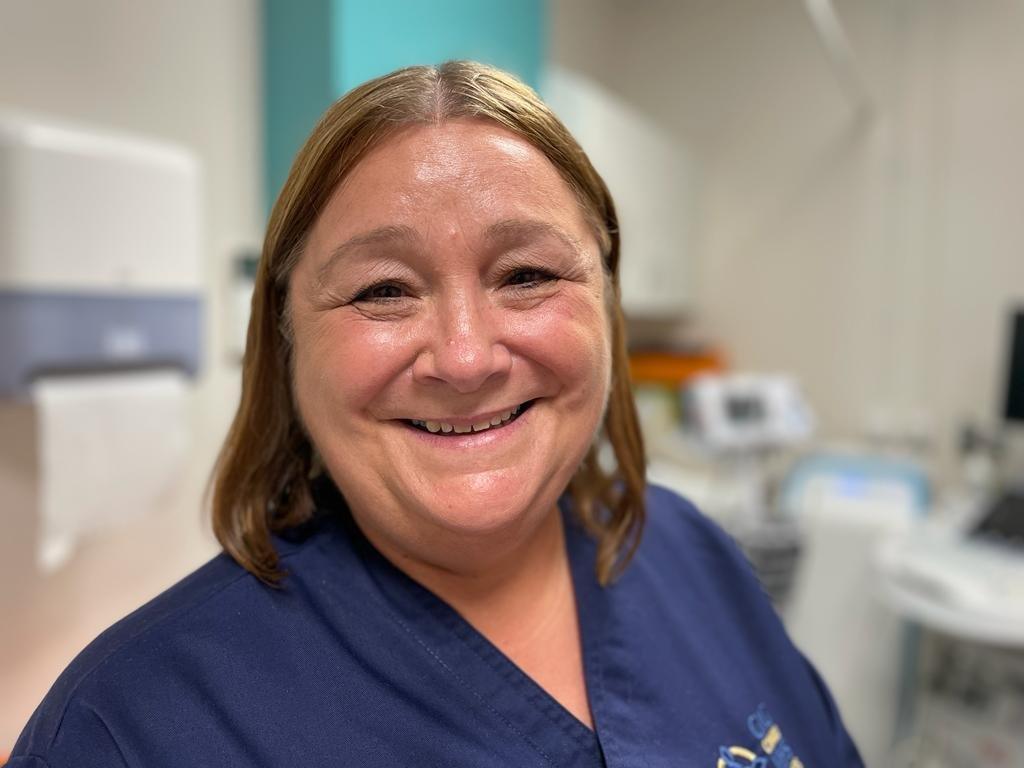
Claire Cutlan is team leader for the early pregnancy unit at the Royal Glamorgan Hospital
"There was actually no baby born on the 5th of July 1948," she said, searching for the NHS's own birth date.
"The first baby was born the day after, on the 6th, and went home on the 16th, so they would have had 10 days' confinement.
"That would have been 10 days of mostly bed-rest - whereas now women are home within six hours."
Clearly much has changed - indeed, the records were discovered during the move into a brand a new gynae hub, which has already done much to transform the care of women.
Their work includes cancer diagnoses, recurrent miscarriage support, post-menopausal bleeding, fertility clinics and endometriosis care.
Mohamed Elnasharty is an obstetrics and gynaecology consultant, as well as group medical director for children and family care within Cwm Taf Morgannwg health board.
When he took on responsibility for the department in 2021, women with suspected cancer were facing long delays.
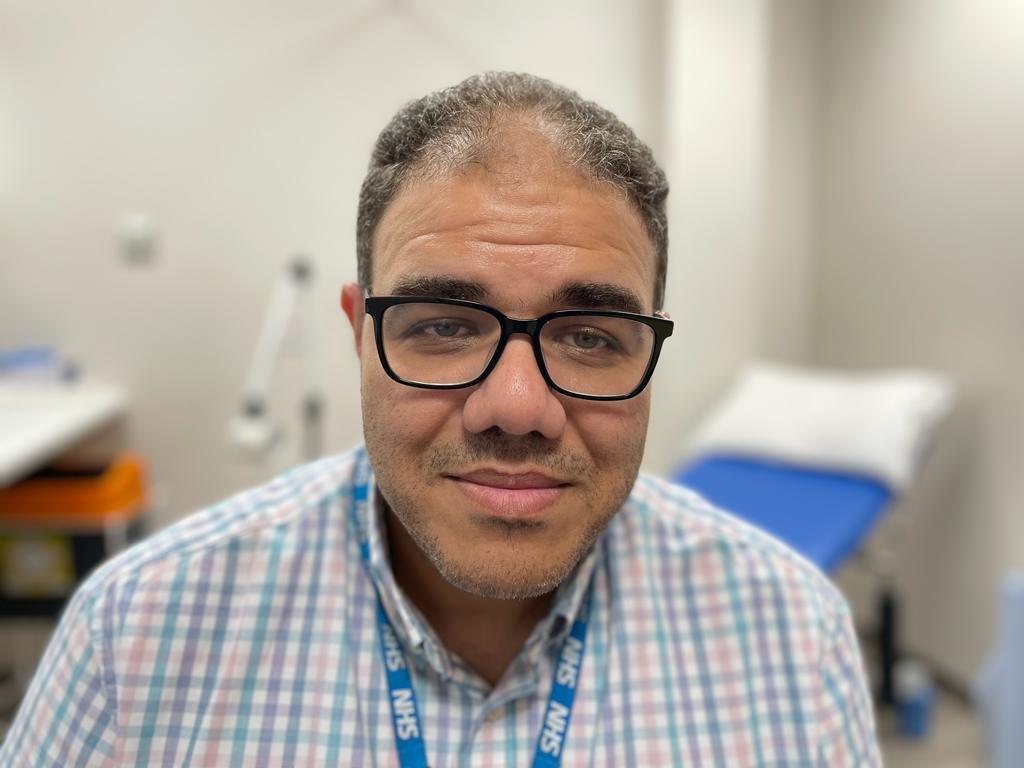
Mohamed Elnasharty says centralising gynae services means waiting times are reduced
"We discovered that a woman, in order to have a single appointment for cancer - which is something very serious - has to come at least three or four times," he said.
"Once for a scan, another time for assessment by a medical doctor, and then another time for review and then a fourth time for a hysteroscopy (a camera inside the womb).
"Which is a lot. And you have to take time off work, there's a lot of anxiety. It can take around six weeks, just to reach a diagnosis."
By centralising services on one site, bringing staff from other hospitals into the mix, it improved efficiency and reduced the anxious wait for patients.
"So the woman's journey from six weeks is now three days. This helped massively - the number of women detected and treated improved almost five times higher than what was before. And has a huge impact on the woman and can you imagine the impact on the quality of care."
Dr Elnasharty explained the hub is still being expanded - in the next few months it will extend to include patients from the Princess of Wales hospital.
Fertility services have also increased from one fortnightly clinic to two weekly sessions, and perinatal trauma clinics have been established to reduce the risk of prolapse or incontinence following childbirth.
Fortnightly endometriosis clinics have also been set up, though Dr Elnasharty acknowledged demand still outstrips supply.
"Our latest development has been the women attending with post-menopausal bleeding," said Claire, explaining that the wider awareness and prescribing of HRT had resulted in an increase in the problem.
"We did have low numbers of women being seen in a timely manner, so our department has set up a two-stop clinic.
"They are seen here for a scan and they're reviewed the same day with their scan and then if they need further treatment it's usually offered within 48 to 72 hours.
"Historically that would have gone through the general gynaecology outpatient department - that could have taken a couple of months before."
- Published4 July 2023
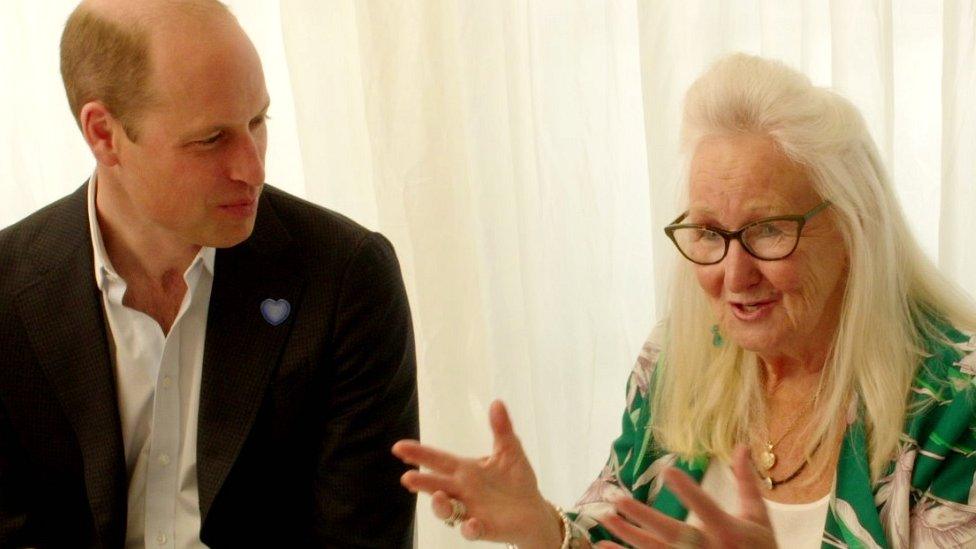
- Published6 July 2023
